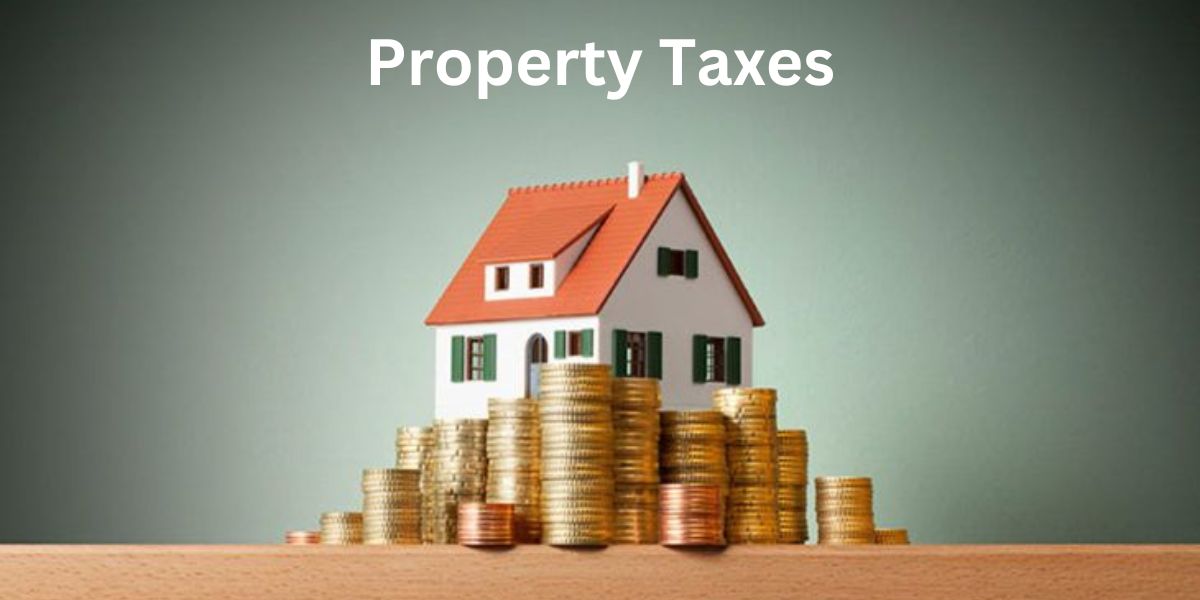
Home improvements are a double-edged sword. On one hand, they can enhance the comfort and functionality of your living space, as well as boost the market value of your property. On the other hand, certain home improvements can lead to an increase in property taxes. Understanding which upgrades are likely to trigger higher property taxes is crucial for homeowners planning renovations. This comprehensive article delves into various: What home improvements increase property taxes? providing insights and guidance to help homeowners make informed decisions.
Understanding Property Taxes
Property taxes are a significant source of revenue for local governments, funding public services such as schools, infrastructure, and emergency services. These taxes are typically calculated based on the assessed value of the property, which is determined by the local tax assessor. When you make home improvements, the assessed value of your property may increase, leading to higher property taxes.
How Are Property Taxes Calculated?
Property taxes are calculated using a formula that typically includes the assessed value of the property and the local tax rate. The formula can be expressed as:
Property Tax = Assessed Value x Tax Rate
The assessed value is determined by the tax assessor, who considers various factors such as the property’s location, size, condition, and recent sales of similar properties in the area. Home improvements that enhance the value of your property will likely increase the assessed value, thus raising your property taxes.
What Home Improvements Increase Property Taxes?

1. Additions and Expansions
One of the most straightforward ways to increase the assessed value of your property is by adding square footage. Expansions such as adding an extra bedroom, bathroom, or an entire new wing to your home are likely to trigger a reassessment of your property value. Since property taxes are closely tied to the size of the property, these improvements often lead to higher taxes.
2. Kitchen and Bathroom Renovations
Kitchens and bathrooms are among the most valuable spaces in big homes. Major upgrades in these areas, such as installing high-end countertops, custom cabinetry, or luxury fixtures, can significantly boost the property’s market value. Consequently, these improvements are likely to be noticed during a property assessment, resulting in increased property taxes.
3. Adding a Swimming Pool
While a swimming pool can enhance your outdoor living space and provide endless entertainment, it also adds considerable value to your property. Pools are expensive to install and maintain, and they often lead to a higher assessed value. Homeowners should be prepared for a potential increase in property taxes following the installation of a pool.
4. Finishing the Basement or Attic
Transforming unused spaces like basements or attics into livable areas can be a smart way to increase the functional space in your big homes. Whether you turn your basement into a family room, home office, or guest suite, these improvements add value and are likely to be reflected in your property taxes.
5. Building a Garage or Carport
Adding a garage or carport provides convenience and can protect your vehicles from the elements, but it also increases the overall value of your property. A new garage, especially if it includes storage space or living quarters above, will likely result in a higher assessed value and subsequently higher property taxes.
6. Upgrading the Exterior
Exterior improvements, such as installing new siding, a new roof, or high-end windows, can enhance your home’s curb appeal and energy efficiency. These upgrades can also increase the assessed value of your property. While improving the exterior may not add square footage, it still contributes to the overall value, which can affect property taxes.
7. Landscaping Enhancements
Investing in professional landscaping, adding features like patios, decks, or outdoor kitchens, can transform your yard into an oasis. These enhancements add significant value to your property and can result in a higher assessed value, thus increasing your property taxes.
8. Installing Central Air Conditioning
Upgrading from window units to central air conditioning improves your home’s comfort and energy efficiency. This improvement can be a significant factor in the property’s assessed value, potentially leading to higher property taxes.
9. Energy-Efficient Improvements
While energy-efficient improvements like solar panels, energy-efficient windows, and insulation can reduce your utility bills, they can also increase the value of your big homes. Many jurisdictions provide tax incentives for energy-efficient upgrades, but they can still result in a higher assessed value and increased property taxes.
10. High-End Flooring and Fixtures
Upgrading to hardwood floors, luxury tiles, or high-end fixtures throughout your big homes can enhance its aesthetic appeal and market value. These improvements are often considered in property assessments, leading to an increase in property taxes.
Managing the Impact on Property Taxes
Understanding that big homes improvements can increase property taxes is essential, but there are ways to manage the impact:
- Plan Ahead: Before undertaking any major home improvements, research how they might affect your property taxes. Consult with a tax advisor or real estate professional to get a sense of the potential increase.
- Consider Timing: Some jurisdictions have assessment schedules. Timing your improvements to avoid immediate reassessment might help delay the increase in property taxes.
- Appeal the Assessment: If you believe the assessed value of your property is too high, you have the right to appeal the assessment. Gather evidence, such as recent sales of similar properties, to support your case.
- Take Advantage of Exemptions: Many areas offer tax exemptions or abatements for certain types of improvements, especially energy-efficient upgrades. Check with your local tax authority to see if you qualify.
Frequently Asked Questions (FAQs)
1. What home improvements increase property taxes the most?
Additions and expansions, such as adding extra bedrooms or bathrooms, generally increase property taxes the most because they significantly boost the property’s assessed value.
2. Will installing a swimming pool increase my property taxes?
Yes, installing a swimming pool typically increases property taxes because it adds considerable value to your property. The higher assessed value will likely be reflected in your property taxes.
3. Can I appeal a property tax assessment after making big homes improvements?
Yes, homeowners can appeal a property tax assessment if they believe it is too high. Gather evidence, such as recent sales of similar properties, and present your case to the local tax assessor’s office.
4. Are there any big homes improvements that do not affect property taxes?
Minor improvements and regular maintenance, such as painting, replacing appliances, or landscaping that does not significantly alter the property’s value, are less likely to affect property taxes.
5. How can I find out if my planned home improvements will increase my property taxes?
Consulting with a local tax advisor or real estate professional can provide insights into how your planned big homes improvements might affect your property taxes. Additionally, contacting your local tax assessor’s office can offer specific information based on your location.
Conclusion
Home improvements can enhance your living space and increase the market value of your property, but they often come with the downside of higher property taxes. Understanding what home improvements increase property taxes is crucial for homeowners planning renovations. By being informed and strategic, you can make decisions that balance enhancing your big homes with managing the financial implications. Whether you’re considering an addition, a kitchen renovation, or energy-efficient upgrades, it’s essential to be aware of the potential impact on your property taxes and plan accordingly.
Visit this website: bighomesinfo.com




